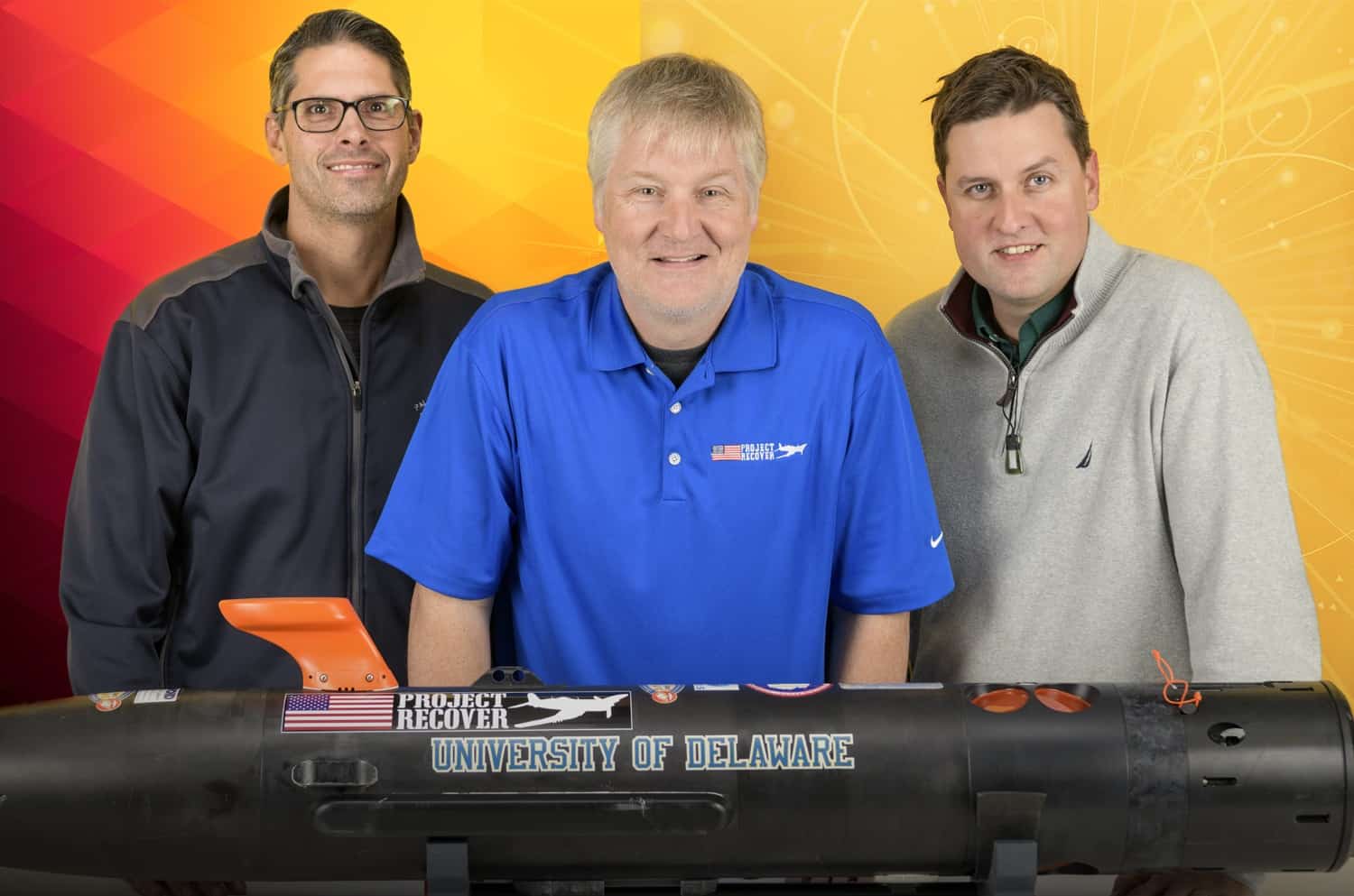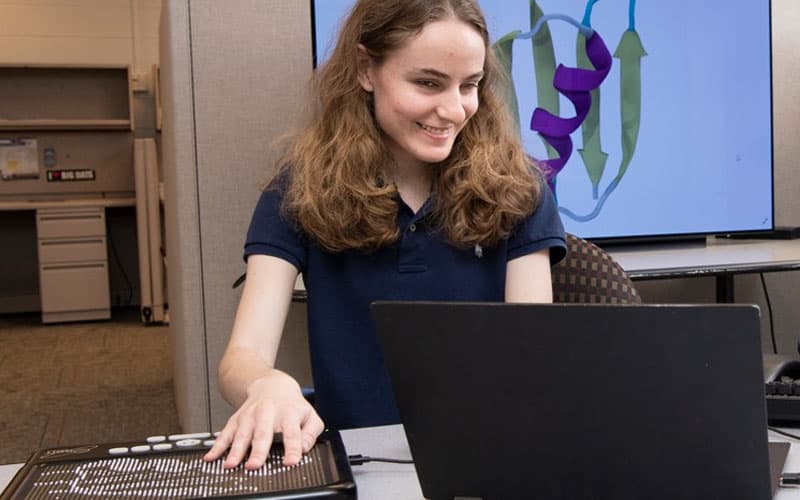 Research & Discovery
Research & Discovery
A Blog Devoted to UD Innovation, Excellence and Scholarship
Research & Discovery
A Blog Devoted to UD Innovation, Excellence and Scholarship
New weapon against breast cancer
ABOVE: UD Professors Emily Day (right) and Joel Rosenthal (middle, back) have combined efforts to improve existing light-activated cancer treatments. Graduate student Andrea Potocny (seated) and undergraduate Rachel O’Sullivan (left) have helped with the research. | Photos by Evan Krape
Light-triggered therapies work better together than separately against triple-negative breast cancer
Two University of Delaware researchers have developed a new approach to attack cancer, using two light-activated treatments that appear to be more effective together than when applied independently. More research is needed, but the findings point to promising new approaches against an especially challenging kind of cancer — triple negative breast cancer — which was the focus of their recent studies.
Triple negative breast cancer is a particularly aggressive form of breast cancer that accounts for 10 to 20 percent of patients. It is called triple negative because the cancer cells do not have three biomolecules commonly found on other breast cancer cells – receptors for the hormones estrogen and progesterone and another receptor known as HER2. This means there are no targeted treatments for triple-negative breast cancer, so it is usually managed with surgery, radiation and/or chemotherapy. Each of these options has negative side effects with less than ideal patient outcomes.
Now UD researchers Emily Day, assistant professor of biomedical engineering, and Joel Rosenthal, associate professor of chemistry and biochemistry, and their labs have shown that a combination of two minimally invasive therapies could give doctors a more powerful weapon against this cancer as well as others.




